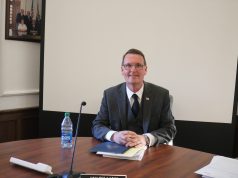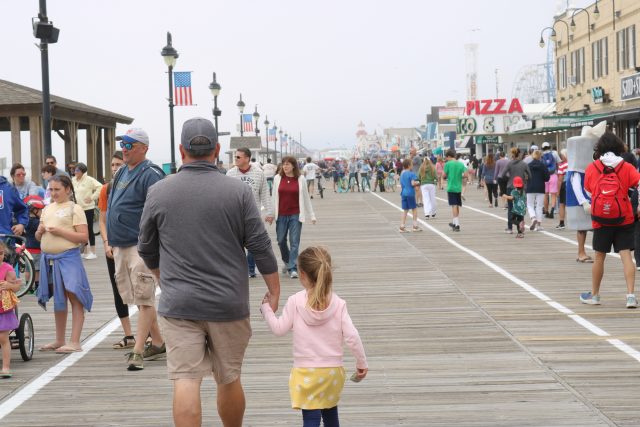
By DONALD WITTKOWSKI
Ocean City is dealing with an escalation of underage drinking and fighting by rowdy groups of teenagers that have turned some stretches of the beach into their own personal “nightclub.”
“The crowds are larger than last year, the kids are drinking more than last year and there is more fighting than last year,” Police Chief Jay Prettyman said.
The plan so far is to keep the partying teenagers on the beaches rather than having them spill out onto the family-friendly Boardwalk, where they could do even more damage, city officials say.
Prettyman declined to discuss specific details of the police department’s strategy for dealing with outbursts of disruptive behavior, but he emphasized that there are more officers patrolling the Boardwalk now than ever before.
“We are constantly re-evaluating our deployment of staff on the Boardwalk,” he said in an interview.
During a meeting Thursday night, members of City Council expressed their frustration with the troublemaking teens. Councilman Jody Levchuk said Ocean City can’t stand by and allow its image as “America’s Greatest Family Resort” to be tarnished by “a bunch of punk kids.”
Levchuk, whose family owns the Jilly’s Boardwalk stores, said that the 11th Street beach has become one of the most popular spots for large groups of teens to hold their parties.
“It’s the hottest nightclub at the Jersey Shore right now,” he said sarcastically of all the partying on the beach.
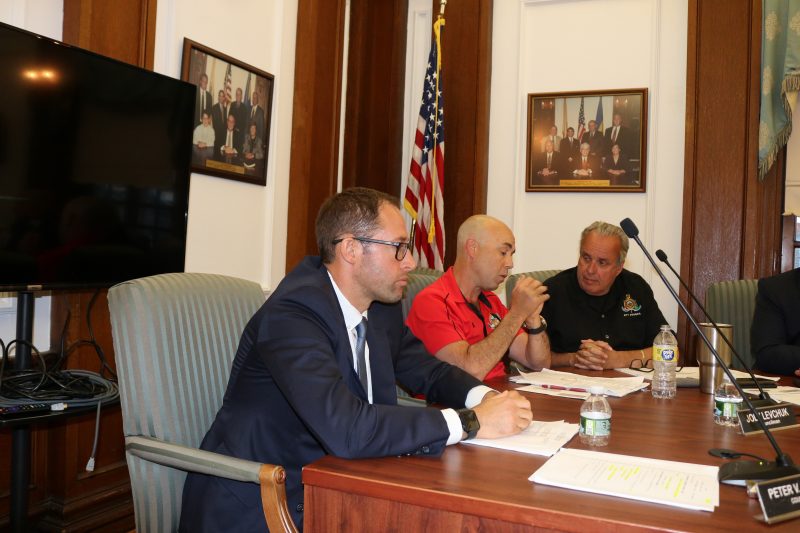
Prettyman said that the beach area between 10th and 12th streets is where most of the teenagers have been hanging out at night.
Councilwoman Karen Bergman noted that social media gives teenagers the ability to quickly spread the word and gather in large groups. She suggested that Ocean City should use social media as a tool to somehow “intercept” the arrival of disruptive teens this summer.
During their discussion, the Council members repeatedly praised Prettyman and the police department for doing what they can to prevent teenagers from getting out of hand.
At the same time, they discussed potential new ways to crack down on unruly behavior, including the possibility of approving a tighter curfew on the beaches and Boardwalk in hopes of preventing teens from gathering late at night.
Ocean City already has a 10 p.m. curfew for the beaches, City Solicitor Dorothy McCrosson said. McCrosson acknowledged that the teens have been staying on the beaches later than 10 p.m.
A formerly quiet bayside park at Second Street and Bay Avenue has become another area for loitering, drinking and loud music at night by groups of young people, neighbors complained to City Council during the meeting Thursday night.
The disruptive behavior threatens to “literally destroy” the normally tranquil area of Second Street and Bay Avenue, one of the neighbors, James Kane, told Council.
Kane said he has spoken already to Prettyman and First Ward Councilman Terry Crowley Jr. and everyone seems to be “on the same page” that something needs to be done about the problem. Kane suggested that the city should consider cordoning off the park at night.
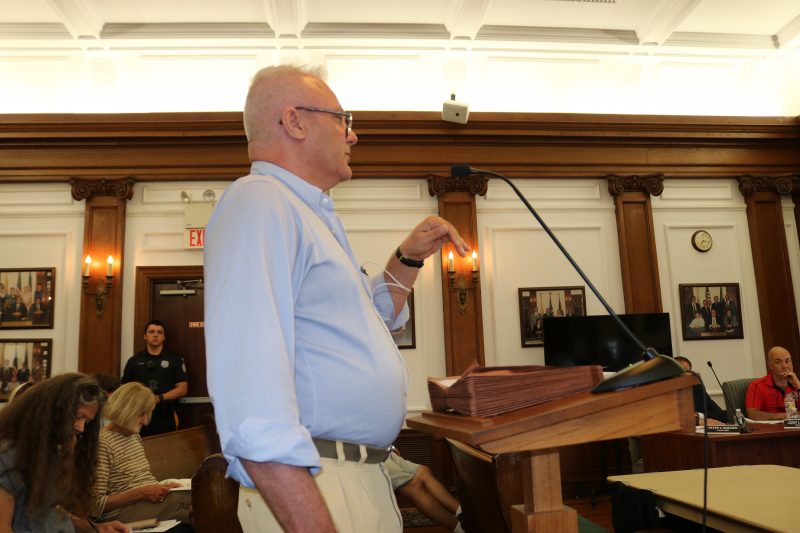
Last summer, the police department increased patrols throughout town, particularly along the Boardwalk and in the downtown business district, to stop groups of unruly teenage bikers from riding through the streets and harassing motorists. There were also reports of teens fighting on the Boardwalk last year.
Prettyman pointed out that the biggest problem so far this summer is underage drinking. He said teens have become particularly brazen because they know police can do little more than issue them a warning under New Jersey law.
“These kids understand they will only get a warning and they have become emboldened,” he said.
The warnings are known in police parlance as “curbside adjustments” or “curbside warnings.” A December 2020 directive by former New Jersey Attorney General Gurbir Grewal requires officers to give curbside warnings to juveniles who are engaging in minor acts of delinquency instead of detaining or arresting them.
For instance, if a juvenile is in possession of marijuana or alcohol, police can do nothing more than issue a warning. Juveniles are not required to give police their names. Police are also limited in notifying the parents of juveniles.
The curbside warnings are part of broader reforms in New Jersey’s justice system “to demonstrate to juveniles that police officers are present to give guidance, direction, and assistance, and not simply to take them into custody,” according to the directive.
During a spate of rowdiness by groups of teenagers and young adults at the Jersey Shore communities last summer, there were complaints from some local, county and state officials that the directive had effectively handcuffed police from doing their job.
Police are limited to a “surround, observe and babysit mode” when they approach rowdy juveniles now, Prettyman said during a law enforcement summit held in Sea Isle City last February to discuss how to prevent another outbreak of bad behavior this summer.
“It all revolves around the fact that kids can drink under the age of 21 and all we can do is give them a warning,” Prettyman said.
Moreover, the 2020 directive restricts police in how far they can go to investigate juveniles. It puts police at risk of being charged with a third-degree crime for depriving juveniles of their civil rights if they are searched without sufficient cause.
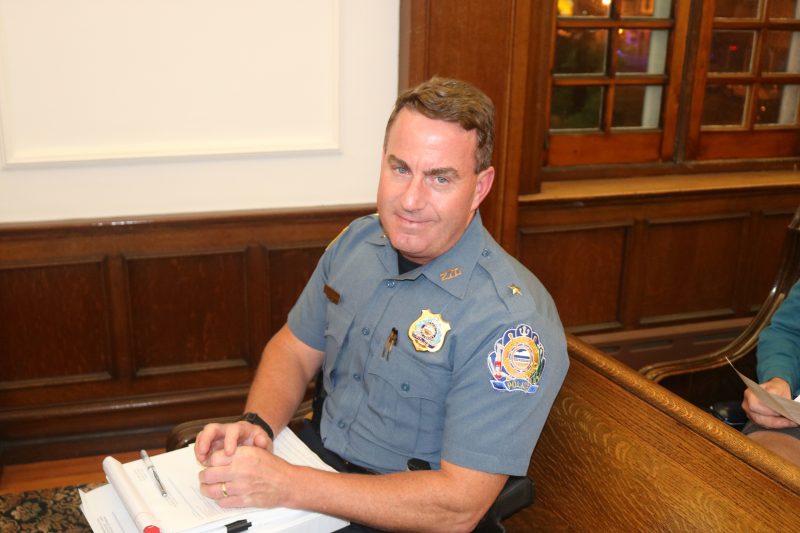
Prettyman was part of a conference call last week that included police chiefs from Monmouth and Ocean counties, Acting New Jersey Attorney General Matthew Platkin, the head of the State Police and a representative of Gov. Phil Murphy’s office. During the call, Prettyman said he urged state officials to carve out an exemption in the law to give police more authority to deal with underage drinking.
Depending on the age of the offenders, Prettyman said he would like to be able to impose a fine on underage drinkers or take them back to the police station and notify their parents. That was the way police used to handle juveniles when they were caught drinking and it was effective, he noted.
With police now limited to giving out warnings for alcohol or marijuana offenses, the teens simply have “zero fear,” Prettyman said.
Councilman Tom Rotondi said shore communities should band together to pressure state lawmakers into approving reforms that would help police to handle teenage rowdiness.
“We’ve got to do something,” said Rotondi, Council’s vice president.
Ultimately, Prettyman believes that parents must assume a stronger role in supervising their teenage children when they go out at night.
“Parents have to stop sending their kids to the Ocean City Boardwalk unsupervised,” he said.
Levchuk also called on parents to take more responsibility for supervising their teenage children.
“It’s far wider than a police problem. Right now, it’s a parent problem,” Levchuk said.




